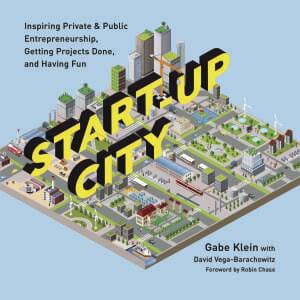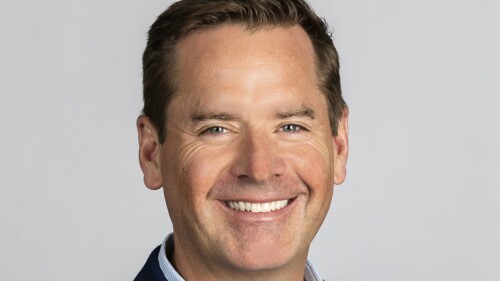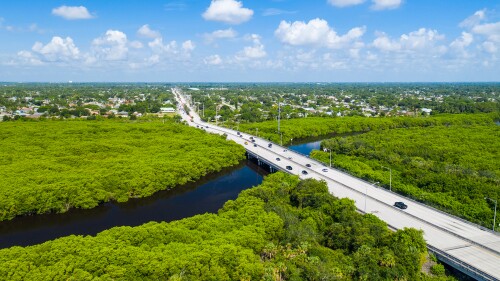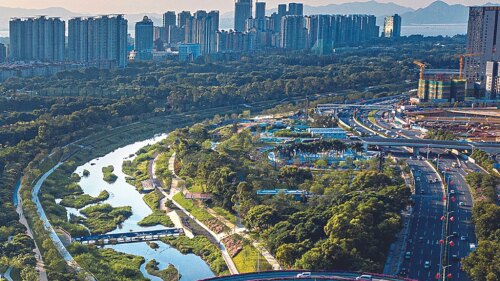Start-Up City: Inspiring Private & Public Entrepreneurship, Getting Projects Done, and Having Fun
Gabe Klein with David Vega-Barachowitz
Island Press, 2000 M Street, NW,
Suite 650, Washington, DC 20036;
www.islandpress.org
2015. 256 pages. Paperback, $22.00.
In choosing the title for this book, Gabe Klein, best known as the former head of the city departments of transportation in Washington, D.C., and later Chicago, refers to the entrepreneurial mentality that public sector workers can bring to government. Concepts like Six Sigma and minimum viable products are often more associated with business school graduates than bureaucrats.
But Klein himself was employed at startups, such as ride-sharing company Zipcar, prior to joining the District Department of Transportation under Washington’s then-mayor Adrian Fenty, and it certainly informed his view of what can and cannot be accomplished. He has more recently returned to the private sector as an adviser to TransitScreen and RideScout, technology firms that help make transportation options more accessible, and, in 2014, as a ULI senior visiting fellow.
While a bike-share program had already been tried unsuccessfully in D.C. under a previous administration, Klein took on the challenge of launching Capital Bikeshare in 2010. At the time, this was one of the largest bike-sharing programs in the United States. He also helped bring protected bike lanes to national prominence when one was installed along Pennsylvania Avenue, “America’s Main Street.” Both of these initiatives have drawn a variety of criticisms after the fact, but this criticism is largely a validation of the initiatives’ far-ranging impact.
Klein’s views on the need for innovation have largely been vindicated, as modifications to the District of Columbia’s regulation have allowed new transportation offerings to flourish. Car2Go and Zipcar are allowing cities to reduce their minimum parking requirements, as apartment dwellers can have access to cars for weekend trips or weeknight shopping on demand. Klein also talks about how the District of Columbia worked with the so-called Chinatown buses (because they ran between Chinatowns in D.C. and New York City) to help build a viable intercity bus terminal in an underused parking deck at Washington’s Union Station. Car-sharing services, while not without controversy, are enhancing transportation options in cities around the world.
Food trucks are another area in which Klein was one of the city administrators questioning the conventional wisdom concerning hot dog cart vendors of the past. Loosened regulations in D.C. created an environment in which entrepreneurs could bring new concepts to the marketplace with greater agility. Klein also advocated for reactivating pedestrian and bike-friendly waterfronts, including Washington’s Yards Park area and the Chicago Riverwalk.
A cautionary tale can be drawn from Klein’s preface, where he writes, “The first year a mayor is in office is the best time to strike with a public or private sector innovation in your city. By the fourth year, lame duck syndrome can set in and/or it’s all about reelection.”
Brett Widness is Urban Land’s online editor and books editor.






